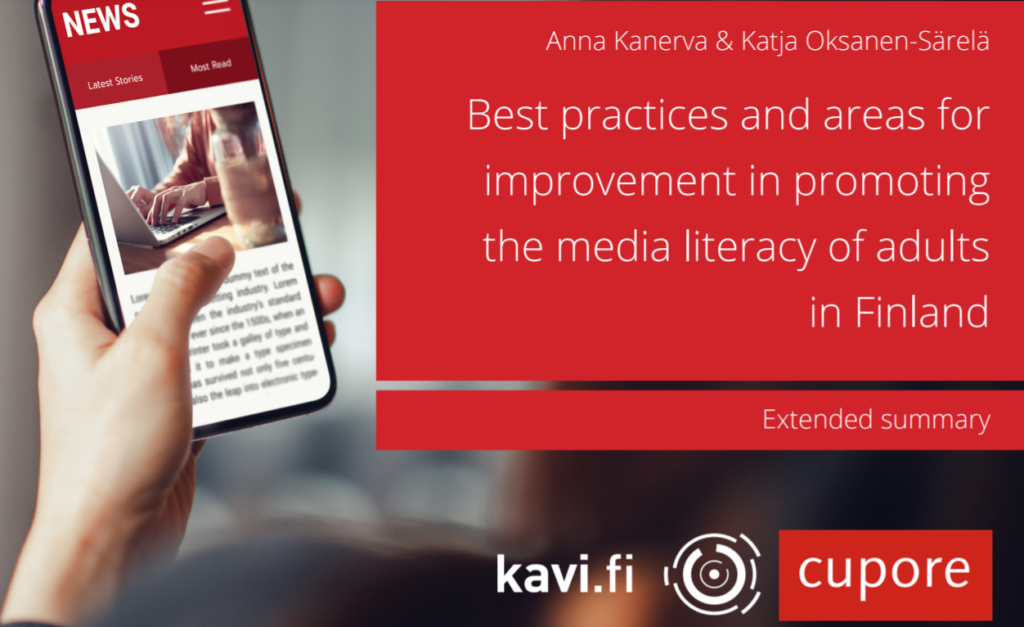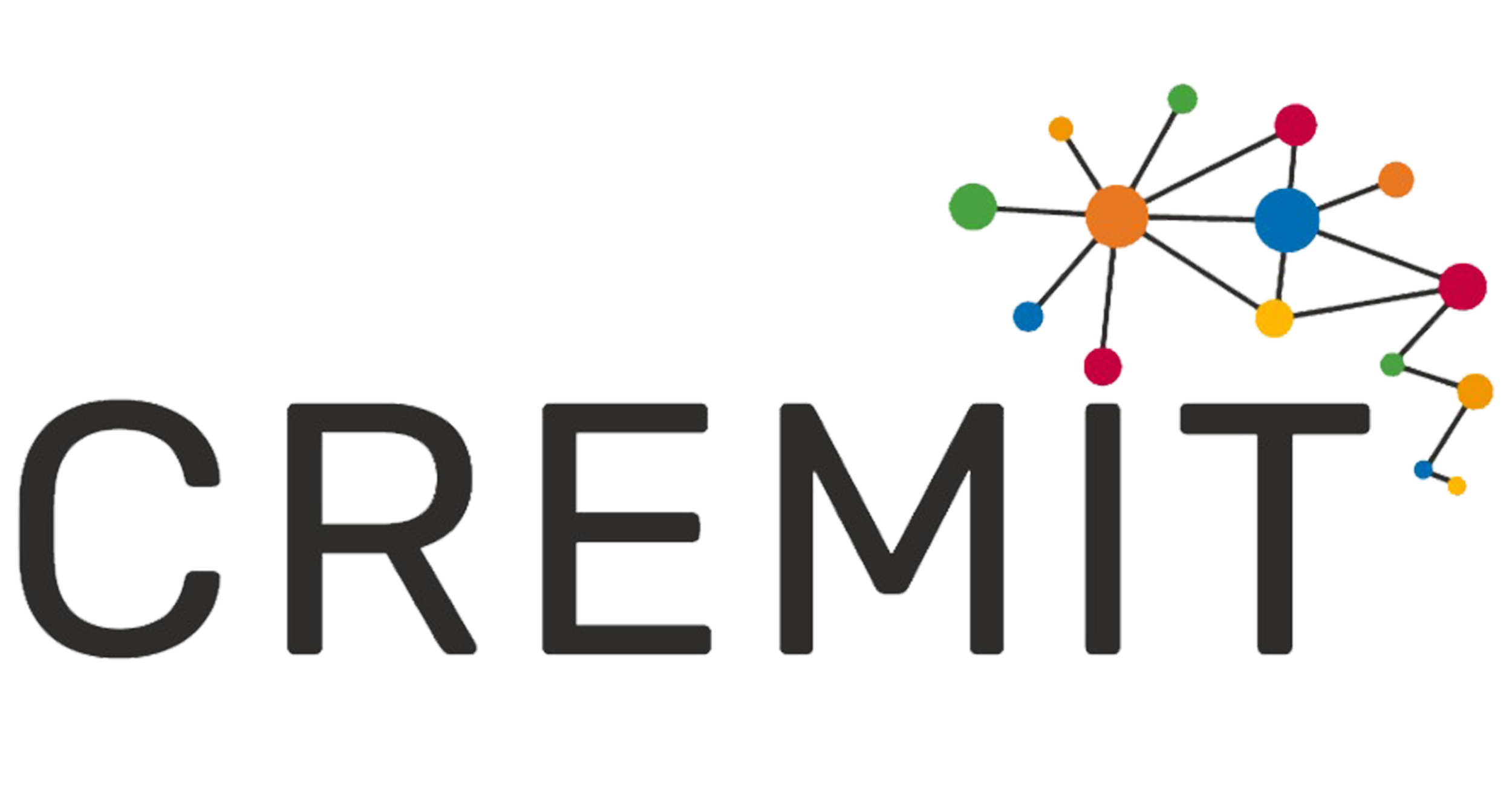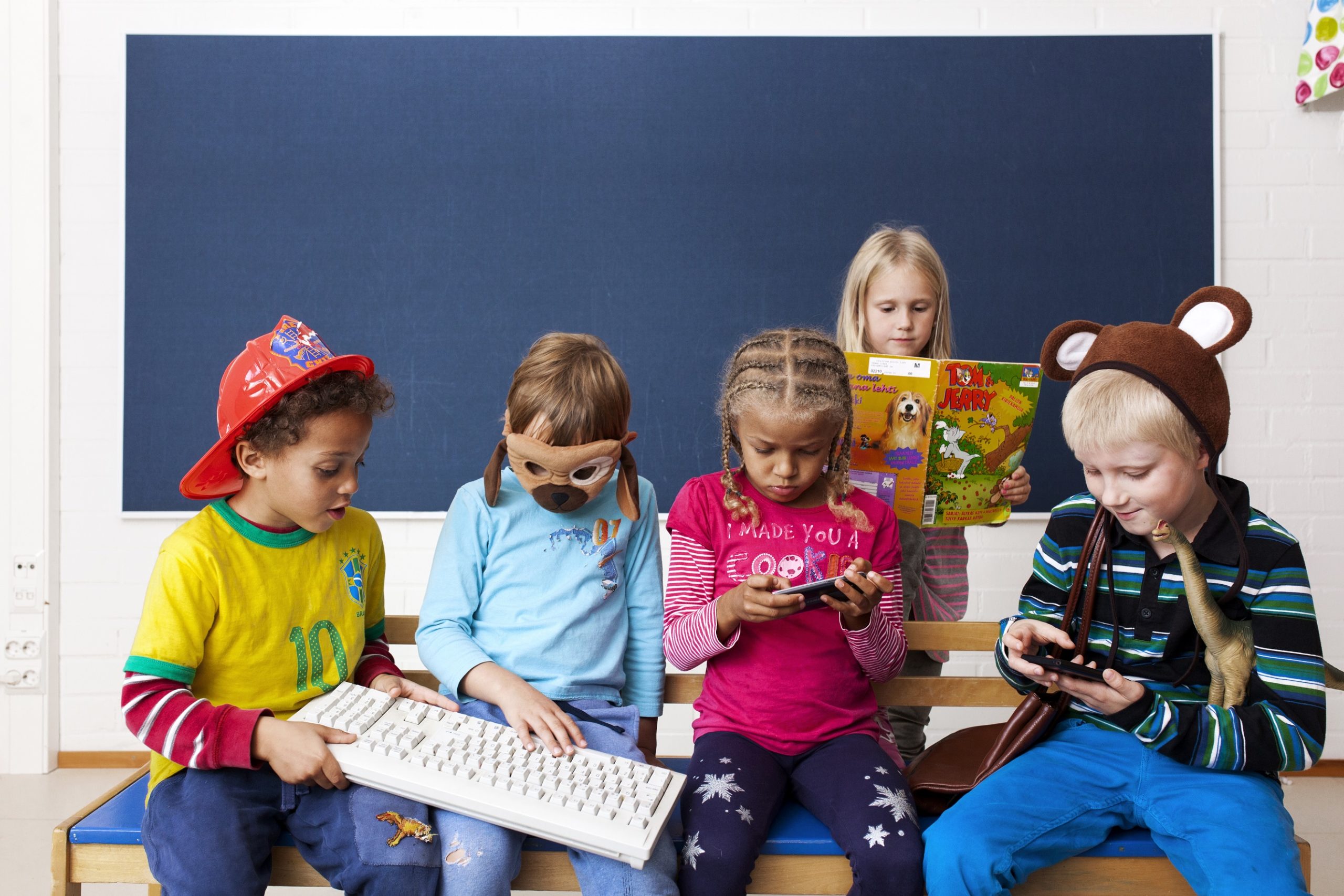
Leo Pekkala
(National Audiovisual Institute)
Lauri Palsa
(KAVI, National Audiovisual Institute)
Media Education Conference 2021, organised by the University of Lapland, brought together researchers and experts from all over the world to Rovaniemi, Finland to discuss and present research findings exploring the topical questions related to mediated society, literacy and learning.
KAVI promotes media literacy in Finland
Together with Leo Pekkala we presented the greetings from the National audiovisual institute KAVI and introduced some of our latest key initiatives to promote media literacy in Finland.
Promoting systematic and cumulative development of media literacy for children and young people
Children live in a media-rich and highly digitalized society. Smart phones, digital games and online video content are part of a minor’s everyday life as much as books, sports equipment or toys.
However, children are not born as competent digital media users. They need education and guidance to learn how to benefit from media. In the Finnish national curricula, broad aspects of literacy are widely included—from early childhood education right through to pre-primary and basic education.
To further support nation-wide equality and each child’s right to learn, the Finnish Ministry of Education and Culture has launched the national New Literacies Development Programme for the years 2020-2022.
The programme is carried out and coordinated by two governmental agencies: our institute KAVI and the Finnish National Agency for Education.
The core of the development programme is a set of competence descriptions for the following three areas:
- media literacy,
- programming and
- information and communications technology (ICT)
The competence descriptions were formed based on the national core curricula in a process involving education experts across the country. In basic education, one important aim of the descriptions is to clarify, to both teachers and the young people themselves, the competences that pupils are expected to achieve through their education. In early childhood education and pre-primary education, no direct learning objectives are set for children. Instead, the descriptions are targeted at professionals as examples of good pedagogical practice.
Competence descriptions aim to inspire and support the systematic planning and evaluation of teaching. The descriptions also demonstrate how these competences cumulate through early childhood education, pre-primary education, and the different grade-levels of basic education.
A variety of free teaching resources will be produced and disseminated for educators to support them in their pedagogical planning.
The resources are designed to inspire and support teaching aligned with the competence descriptions. Many of these resources also serve as in-service training material for teachers. During the years 2021-2022, over 40 municipal projects across Finland will be piloting the program in practical teaching.
Media literacy for adults
In today’s highly digitalized and mediated world, media literacy is not essential competence only for children and young people but for all ages. There are plenty of examples in the services provided by liberal adult education providers, libraries and other cultural actors, civil society organisations and businesses, which contribute to providing people with opportunities to develop their media literacy. However, even though plenty of work is being carried out, a comprehensive understanding of the overall situation is yet to be achieved. Thus, together with the Centre for Cultural Policy Research Cupore we conducted a qualitative interview study to get a closer look of the current situation.

During the interviews, experts were asked to consider the challenges in their own work aiming to promote adults’ media education, as well as factors that promote or support their work on media literacy. After this, they were asked to assess the field’s general situation in Finland: what the essential challenges in the field are and which factors support the work.
Media literacy is understood broadly in Finland. The study at hand broadens knowledge of what media education perspectives and topics are currently emphasised in media education work and what are the areas where more attention should be paid to in the future. According to the study, attention should be paid to critical media literacy and, in terms of user skills, security skills and data control.
Various literacy concepts, such as media literacy, information literacy and digital literacy, have been introduced to cover the developments in technology and media. Based on the study, defining media literacy as part of broader strategy can help to ensure the needed resources for the practical work.
Setting directions for the future
Study also involved seeking ideas for key actions in the future that could facilitate promoting the media literacy of adults in a comprehensive, high-quality and systematic manner in accordance with the objectives of the Finnish media education policy.
The actions highlighted by experts in the survey can be divided into five areas:
- promoting awareness of media education,
- coordination and steering,
- strengthening the research basis,
- increasing media educational competence and
- developing financing.
Key for systematic development of media literacy is in the cooperation
Promoting media literacy is a joint effort. No one is able to solve all of the challenges related to the actions mentioned above alone, but all can take part in the shared effort. The highlighted actions help with finding points to delve into and create a basis for joint discussion.
In KAVI, we support media literacy work for example by producing, compiling, and preparing support materials, promoting awareness and educational competence, coordinating and creating new opportunities for stakeholders to co-operate, network and provide information about their own activities.
If you are interested to learn more about media literacy in Finland, feel free to contact us.
Lauri Palsa (PhD) is a Senior advisor and media literacy team leader in the National Audiovisual Institute, KAVI, in Finland. He has several years´ experience in researching, developing and promoting national media education in Finland. He is the co-author of the Media literacy in Finland. National media education policy. He is interested in developing contextualized literacies in the digital mediated world, competence-based education, curriculum research and media education.
Leo Pekkala has a long academic and professional career both in Finland and internationally. Dr. Pekkala is the Deputy Director of the National Audiovisual Institute of Finland and the Head of its Media Education and Audiovisual Media Department, a government authority under the Ministry of Education and Culture. His main tasks are the promotion and coordination of media education at a national level. He is also the government authority on supervision of the provision of audiovisual programmes from the perspective of protection of children, and classification of audiovisual programmes (age ratings).








